
UAEX Money
Are you financially ready to move? Prepare for your move to a new apartment with these tips from financial expert Dr. Laura Hendrix! This Q&A covers questions about deposits, cutting commuting costs, utilities, and more!
Ask Laura: Money Matters When Moving, Part 1

Recently a friend asked me some questions about moving and how that would affect her finances. She has allowed me to share those questions here on my blog.
Dr. Hendrix,
I am planning on moving to a new apartment in the next couple of months. I'm currently living over an hour's drive away from work and the new apartment will be about a 10-minute drive away. I want to consider all the financial aspects of the move so my transition can be as smooth as possible. Here are my questions:
Do you have any advice for predicting my average monthly cost of living in a new apartment? How can I know if I will be able to afford to live in a new place?
The best way to determine how much you should spend on housing is to create a spending plan. The basic building blocks of a good spending plan are an income statement and an expense statement.
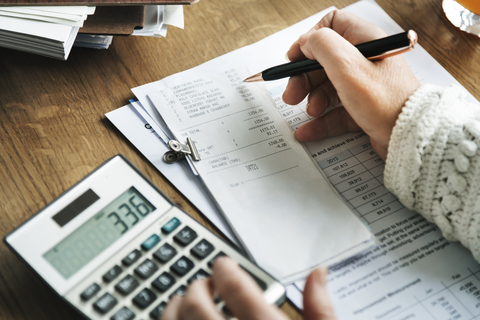
Do you know your income and expenses for each month?
Creating a spending plan is a good idea!
Income Statement: an estimate for all monthly income
Expense Statement: an estimate for all monthly expenses. This may include car payment, gas and maintenance, insurance, food, health care expenses, student loan payments, clothing, entertainment, etc.
Be sure to include periodic income and expenses – those things that happen throughout the year but may not be every month. Divide these by 12 to estimate a monthly average.
Try to include everything you will be spending money on in your spending plan. This snapshot of income and expenses should give you a good idea of how much you can afford to spend on housing.
Remember that your spending plan will need to include setting aside some money to save for emergencies, for retirement, and for future goals.
Is there a way to determine how much money I will save in gas since I will be closer to work, and my commute time will be significantly shorter?
Before calculating how much money you will save, you will need to know a few things: your average miles per gallon for your vehicle, the miles driven for both commutes, the average price of a gallon of gas, and approximately how many days you commute each month. Here are the steps to figure out how much you will save:
- Find or calculate your average miles per gallon for the car your drive to work
- Determine the difference in how many miles will be reduced by moving closer to work
- Divide the # of miles saved by miles per gallon to find how many gallons of gas you are saving
- Multiply gallons saved by the average price of a gallon
- Multiply price of gas saved by number of days per month making the commute
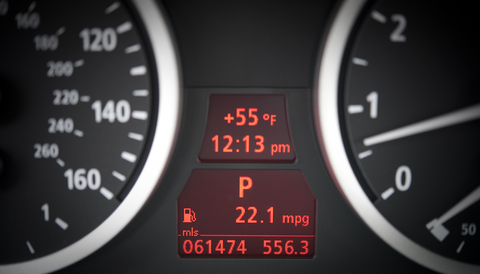
Do you know how many miles to a gallon your car gets?
Knowing this can help determine how much money you can save by minimizing your commute.
Step 1: Calculate Average Miles Per Gallon
If your car does not tell you the average MPG, you can calculate this the next couple of times you fill the tank.
To calculate this, record the miles shown on the odometer before you fill the tank. Fill the tank completely to the shut off point. The next time you need to fill up, check the odometer reading. Subtract the previous reading from the current to determine the number of miles you’ve driven. Fill up the tank again to the shut off point and write down the number of gallons. Divide the number of gallons of gas by the number of miles to determine average miles per gallon for that tank of gas.
(miles driven) ÷ (gallons used to refill the tank) = miles per gallon
Step 2: Compare Miles Per Day for Both Commutes
Determine the number of miles you drive each day (to and from work) for the current, longer commute. Determine the number of miles you will drive each day (to and from work) for the new, shorter commute. Subtract the mileage of the shorter (new) commute from the longer commute. This will give you the number of miles you are going to shave off your daily drive mileage.
(mileage to and from in one day of old commute) - (mileage to and from in one day of new commute) = # of miles shaved off
Step 3: How Many Gallons of Gas Am I Saving?
To find the number of gallons of gas you are saving, divide the number of miles shaved off your daily drive mileage (calculated in Step 2) by the miles per gallon your car gets (calculated in Step 1).
(# of miles shaved off) ÷ (miles per gallon) = gallons saved
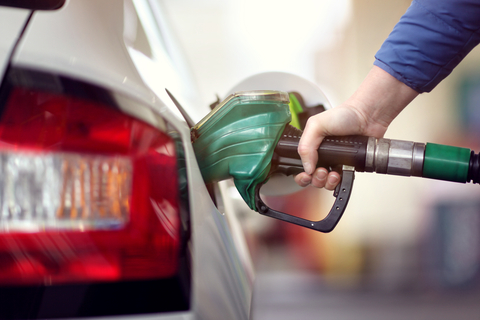
Step 4: Estimate the Amount of Money Saved Per Day
To find how much money you will save in one day, multiply the number of gallons of gas you are saving by the average cost for a gallon of gas.
(gallons saved) x (cost of 1 gallon of gas) = cost saved per day by shorter commute
Step 5: Estimate Savings Per Month
Most people plan budgets for a month. Once you know how much money you will be saving per day, you can easily find savings per month by multiplying the number calculated in Step 4 by the number of days you will drive to work during the month to estimate the monthly expense for your spending plan.
(cost saved per day) x (# of days commuting in a month) = cost saved per month

Benefits of a Shorter Commute
In addition to gas, a significant decrease in commute will also save on maintenance for your vehicle – fewer oil changes, not as much wear and tear on tires, etc. Less mileage on your car means it has a higher resell value if you decide to trade it in. Less commuting time frees up more of that valuable resource for you to use in other pursuits – work, hobbies, self-care, hanging with friends and family or other things you enjoy.
Should I have money saved up before I move, how much, and what should the money be dedicated for?
Yes – you will need money for the rental deposit (1-2 times the monthly rent) and for utility deposits. There may be additional deposits if you have a pet. You might also need to purchase some necessities for the place when you move in – shower curtain, drapes, cleaning supplies, dishes, etc. If a rental property does not come furnished or if appliances are not included those will be additional large expenses.
What is a deposit, and how much do they tend to be?
A deposit is an amount of money paid upfront and to be held as security to cover a company’s potential loss. For renters, it is usually at least one month’s rent but may be as much as two months' rent. Deposit amounts vary by utility company and may also vary based on the applicant’s credit and/or payment history. Visit the town’s website or call the Chamber of Commerce to find out which utility companies service the local area. Contact the utility company to find out about the process for starting services and deposit amounts.
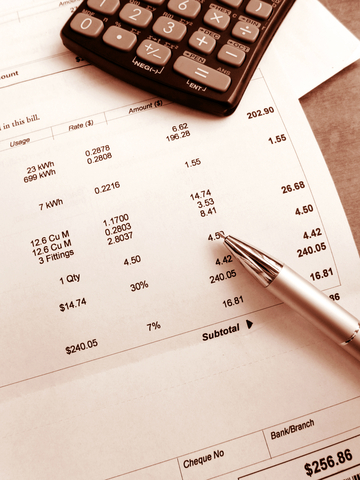
What utilities do I need to consider getting?
Check your new home and the town in which you will be living. The town’s website should provide information about utility services based on your new location. Most homes will need at least water and electric. Some places are all electric, but some homes will use gas for central heat and/or hot water. Most towns offer trash pick-up as a service. This is often but not always bundled with the water bill. Most people want internet service. Optional services are phone, cable, or streaming packages.
What is the process of turning on utilities in my new place? What should I consider when turning off my old utilities?
If using the same utility company for both the old and new location, you will usually be able to transfer service. If not, you will need to coordinate the turn off date at the old place and the start service date for the new place.
When turning off old utilities, you may be able to have the initial deposit refunded to you, if you were the person who paid the initial deposit. This does not happen immediately but usually occurs a month or so after shut-off when the company can determine that final bills have been paid.
For the new location, you will need to notify the utility company, pay the deposit, and make arrangements to start service in plenty of time before your move-in date so you will have water and electricity when you arrive. For some services, it is necessary for you to be at the residence when they start or “hook-up” services. Each utility company will be able to provide details of what is required.
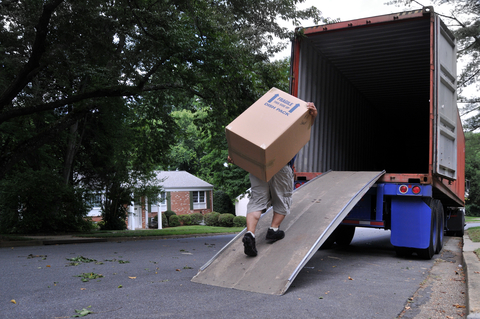
If moving a short distance, you can usually make a few trips in a smaller truck.
Is there any way I can predict moving costs, such as truck rental, gas, etc.?
If moving a shorter distance, you can typically make multiple trips in a smaller truck. However, for longer distances; you will need to plan to take everything in one haul. If you plan to use a moving service, they will usually provide an estimate. If you are moving yourself, you will need to determine the size of the moving van you will need and call companies for the rental price of the truck or van you plan to use. You might also ask the rental company if they have an estimate of the miles-per-gallon for the vehicle you plan to rent. You can use the miles-per-gallon and the estimate of the mileage you will drive to determine the cost of gas for your move.
What are some surprise expenses I might run into that I didn't consider?
It’s difficult to anticipate everything in life, that’s why it’s always good to have at least a few hundred dollars in an emergency savings fund. If you are just starting to save, aim to build an emergency fund of $500. Once you’ve reached that savings goal, try to save enough to cover at least one month of expenses.